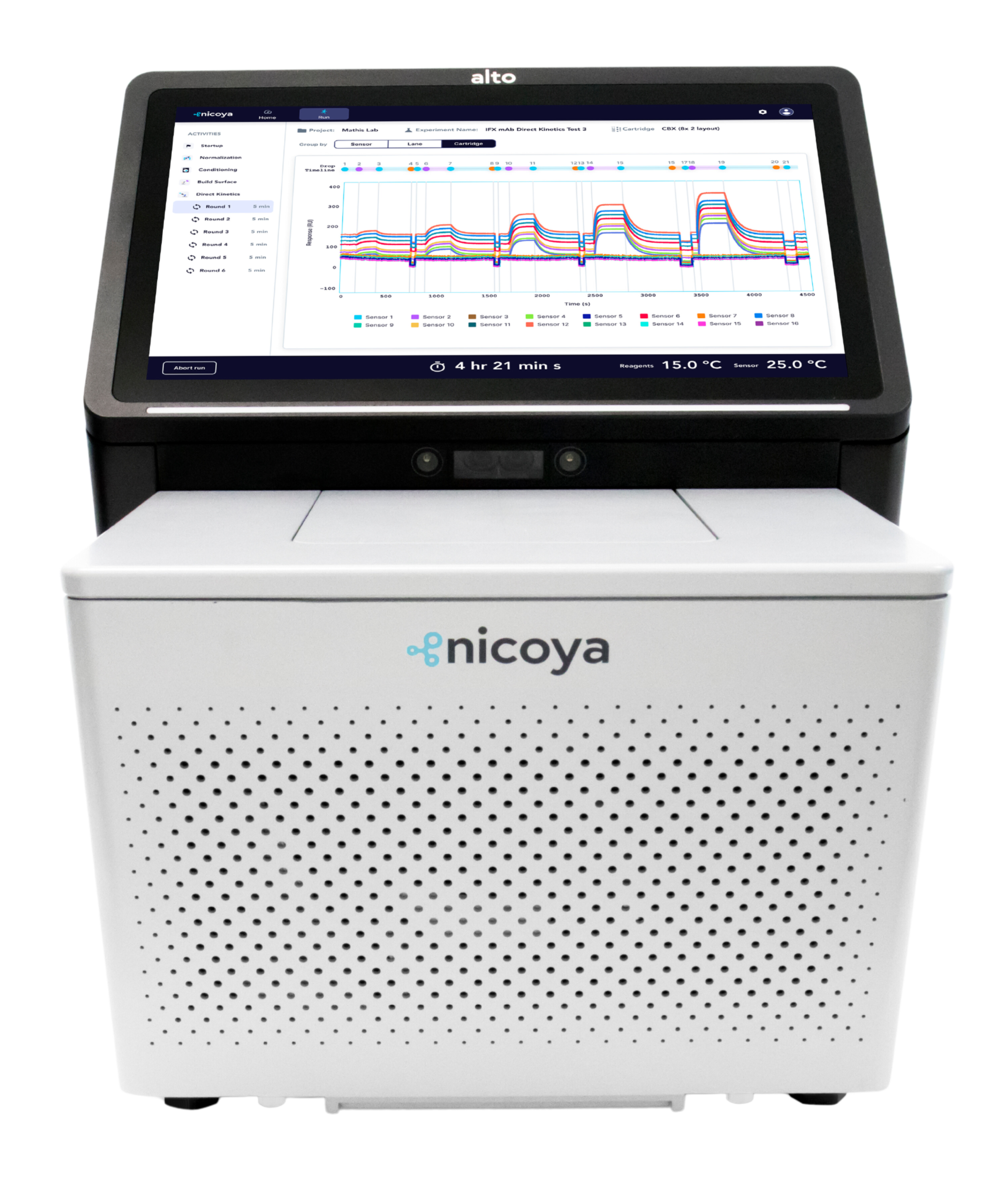In the pursuit of precision medicine for bipolar disorder (BD), identifying and functionally characterizing genetic mutations is crucial for refining therapeutic approaches. Dr. Siderovski’s lab recently published a study that exemplified such translational advances by evaluating the impact of a high-penetrance, familial BD-associated missense mutation, R59Q, within the PDZ domain of Regulator of G-protein Signaling 12 (RGS12). Utilizing the Nicoya Alto™ Digital Surface Plasmon Resonance™ (SPR) platform, this research rapidly assessed the mutation’s impact on RGS12 binding affinity to candidate peptide targets—CXCR2, MEK2, and SAPAP3. Results reveal a significant reduction in binding affinity across all tested peptides, suggesting altered protein-peptide interactions attributed to the R59Q mutation. This binding deficiency, corroborated by AlphaFold-derived structural models and molecular dynamics simulations, demonstrates how SPR-based functional testing can accelerate our understanding of disease-related mutations.
This approach bridges genetic discovery with functional validation, supporting the translational vision where mutation-specific insights drive personalized pharmacotherapy in psychiatric disorders. By integrating Nicoya’s SPR technology, we move closer to realizing precision treatments informed by unique genetic landscapes—a foundational goal for enhancing disease management and therapeutic outcomes in BD and other complex diseases.


